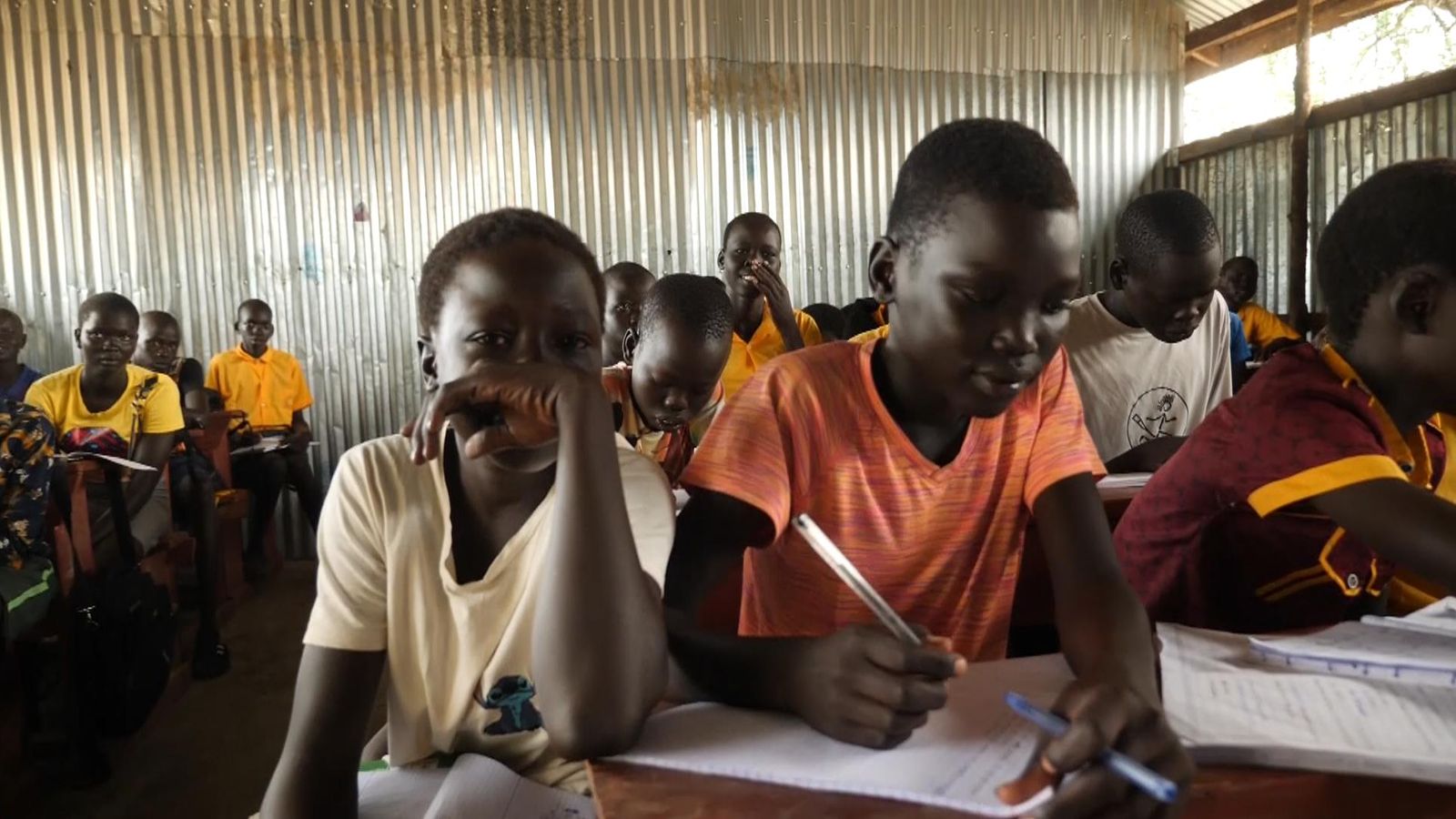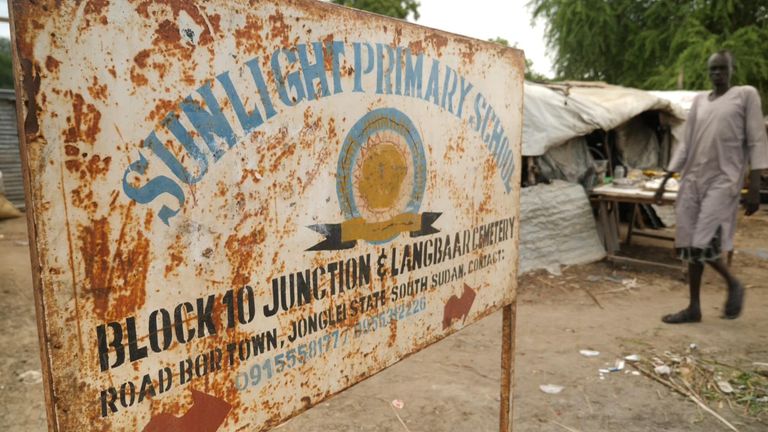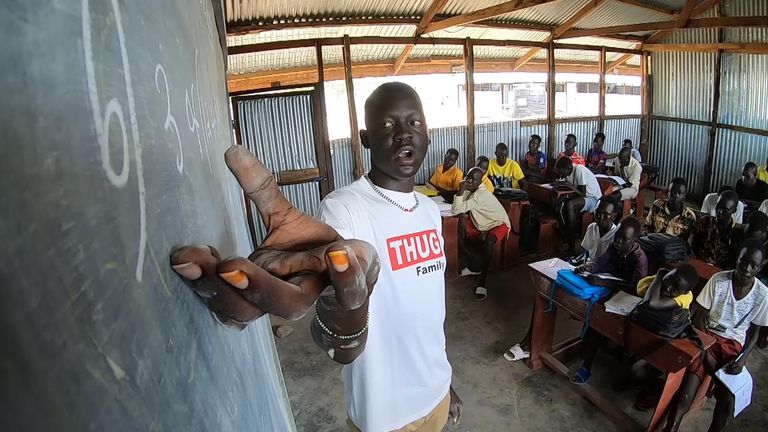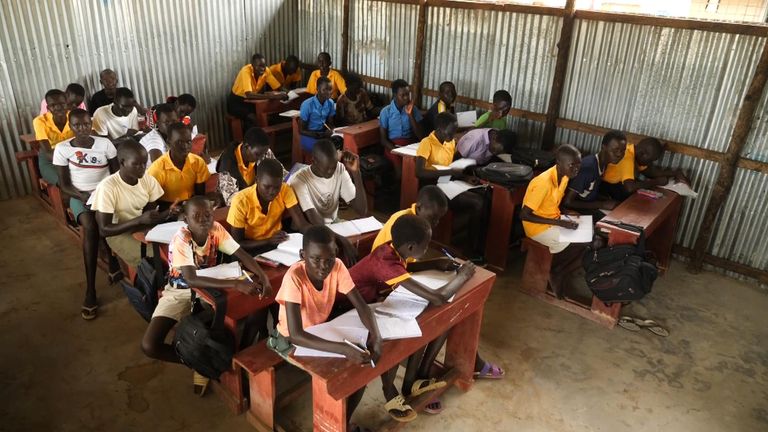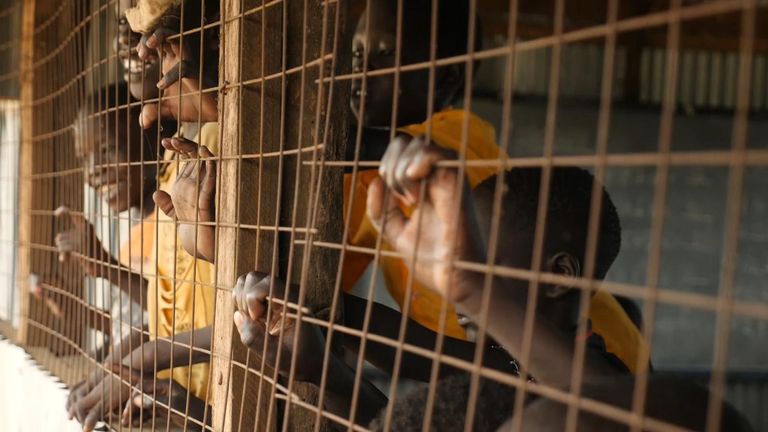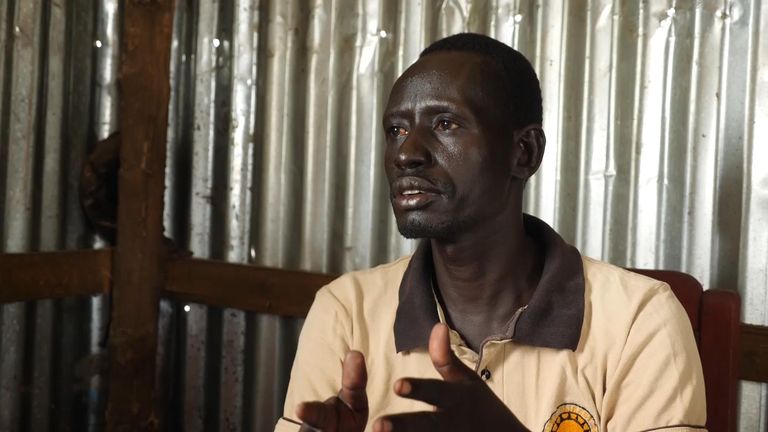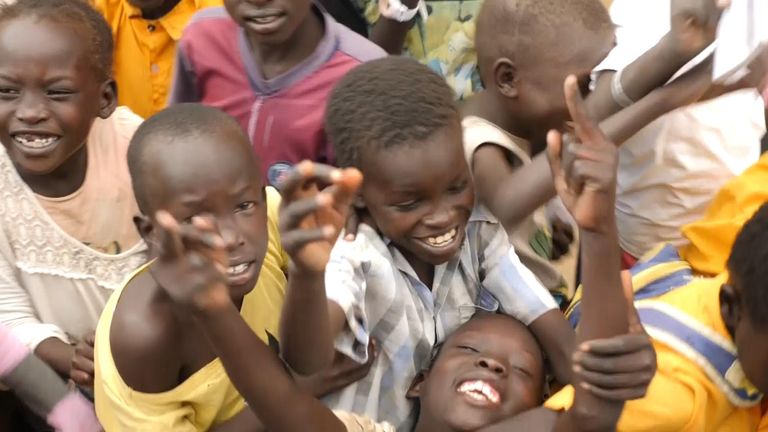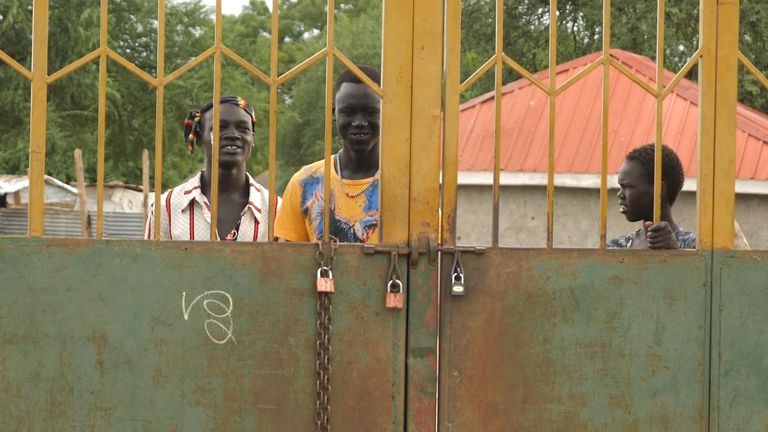In a ramshackle corner of a war-ravaged state, the sound of joy and youthful exuberance fills the air.
We’re in a town called Bor, which occupies a waterlogged stretch along the White Nile in the northeastern part of South Sudan.
The noise takes us to a school called Sunlight Primary with 10 corrugated metal classrooms surrounding an open patch of dirt that looks a bit like a building site.
The school is home to roughly 700 students in one of the poorest communities in one of the most impoverished countries on Earth.
The fragile state of this nation – produced by a corrosive combination of poor governance, near-constant political and ethnic warfare, and unprecedented flooding – is reflected in the state of the nation’s schools.
Sunlight Primary’s facilities are both rudimentary and oversubscribed with three or four children sharing desks in classes of 50 or more pupils each.
The teachers do their best but there are no teaching aids or textbooks here. Nor are the staff compensated for the work they do. In common with most civil servants in South Sudan, they are barely paid for the service they provide.
At Sunlight Primary, teachers earn just 3,500 South Sudanese pounds per month – the equivalent of around 50p.
“It’s about enough to buy a bar of soap,” says 19-year-old teacher Daniel Akech Gar, who is wearing a tatty, reproduced Arsenal shirt.
Qualified professionals have deserted schools like Sunlight Primary and their replacements tend to be youngsters in their teens or early twenties.
I speak to one called Jool Abraham as he tries to organise an English lesson.
“Have you had any teacher training?” I ask.
“No,” he replies.
“I would like to finish high school… the problem is, I am still a student myself.”
A British charity called Windle Trust International has set up a program to help teachers in South Sudan obtain their high school diplomas and begin professional training. It also runs a mentorship scheme for girls who have obtained places in secondary schools.
But the trust says it has lost funding of about £460,000 as part of the UK government’s cuts to overseas aid.
Almost 2,000 teachers signed up to get their diplomas and the charity had booked teaching space at 50 centres with specialist staff to teach the curriculum, only to be told about the cuts the week their programme was scheduled to start.
Loke Justin Gordon heads up the Windle Trust’s programmes in South Sudan.
“We really felt demoralised after putting in a lot of effort, a lot of training. We even hired some experts to work on the curriculum so we could teach secondary school in two and a half years to get them through and when we were at the point of beginning to take off, that is when the news came.”
I ask the headteacher at Sunlight Primary, Peter Ayii, whether he thinks his staff would benefit from additional education.
“If there is training, [it] can open the mind of the person, then you know what to do. But if you are not trained in [how to] educate, then you can’t do anything,” he says.
It turns out that Sunlight’s Primary’s headteacher is also interested in the trust’s high school diploma programme.
“Of course, I like that, if [it is possible] I will do it. I will call my teachers and then we will go,” he says.
Sky News has obtained a letter issued by the UK’s ambassador to the country, Jonny Baxter, on 27 April, informing South Sudan of “significant reductions” to the overseas aid budget.
In that letter, the ambassador said that Britain will prioritise funding “to support 400,000 girls to access education and improve the learning environment for all South Sudanese children”.
The cuts to the Windle Trust, which is one of five members of the Girls’ Education South Sudan (GESS) consortium, seemed to be a clear breach of that commitment.
In response to our findings, the Foreign Office said: “While the seismic impact of the pandemic on the UK economy has forced us to take tough but necessary decisions, the UK aid budget this year will still be more than £10 billion.”
It added the UK will spend almost half of its bilateral aid in Africa, including using resources to “support to get girls into school, fight the causes and consequences of climate change and support economic development to build trading partners of the future”.
Odds are, Sunlight Primary will be the only school in Bor these children will ever know.
Of nearly 100 children who left the facility last year, only 10 went onto high school and the benefits of an education provided by unqualified teenagers are limited.
Their future in school – and life – has been curbed before it’s begun.
